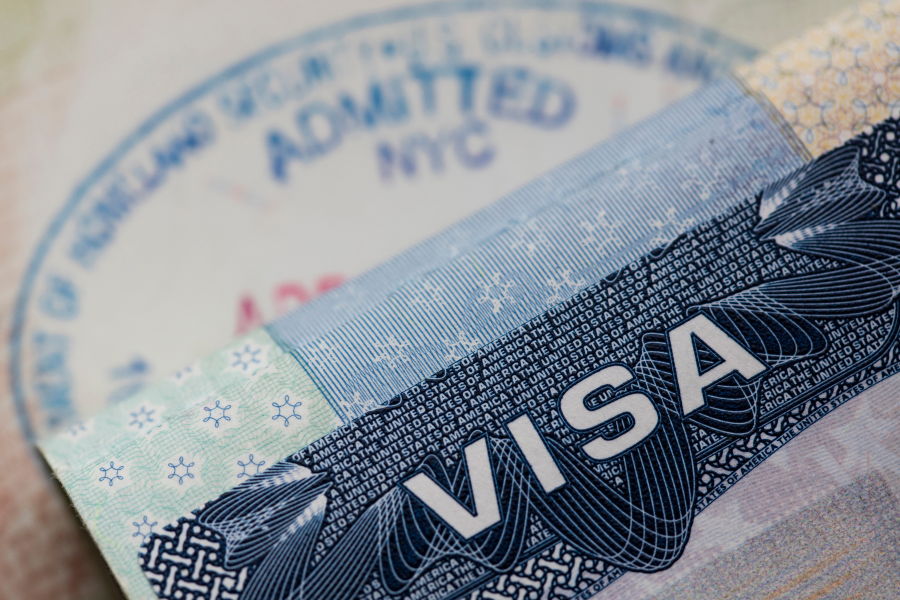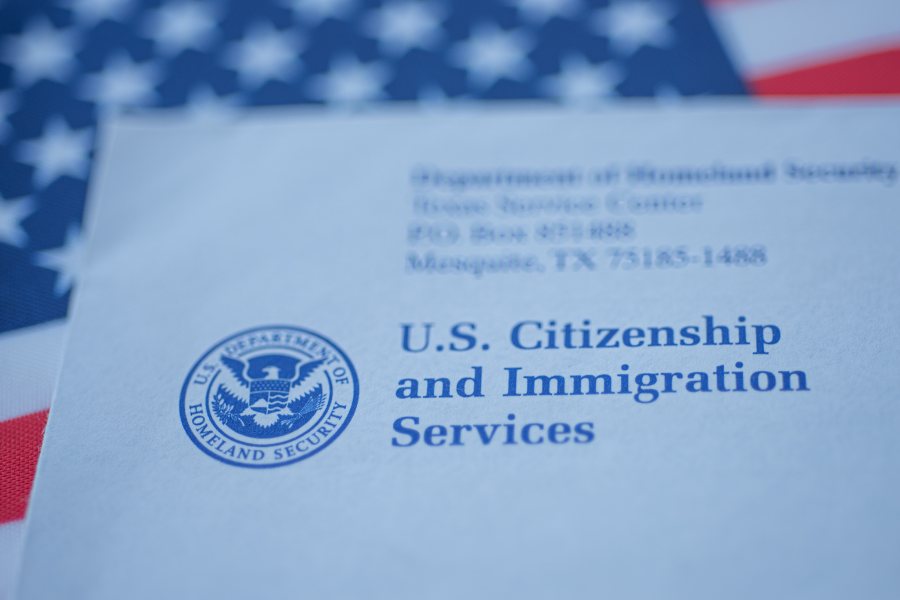KEY POINTS:
- Foreign nationals who wish to travel to the United States from Europe either must fit into one of the travel restriction exceptions or obtain advance permission to board a plane to the U.S.
- In the alternative, they may travel to a third country and quarantine there for two weeks prior to coming to the United States.
- The U.S. and overseas partners are anxious to relax those restrictions.Advanced COVID-19 airport testing may provide a solution.
- We expect some testing of these technologies followed by the announcement of new travel protocols in time for the winter holidays.
INTRODUCTION: COVID-19 has had a dramatic impact on transatlantic trade and travel and the protocols adopted at the height of the pandemic need to evolve.
The 2019 novel coronavirus (“COVID-19”) prompted nations on both sides of the Atlantic to enact strict travel restrictions. Central to the U.S. response is the May 24, 2020 Proclamation on Suspension of Entry as Immigrants and Nonimmigrants of Certain Additional Persons Who Pose a Risk of Transmitting Novel Coronavirus (“Proclamation”). The Proclamation bars admission to those who have been physical present Europe in the fourteen days prior to seeking admission to the United States.
This has presented significant problems for foreign nationals and businesses on both sides of “the pond.” Although the Proclamation contains exemptions (“Waivers”), foreign nationals usually must demonstrate that significant U.S. interests are affected by preventing them from seeking entry to the United States. Although U.S. Customs and Border Protection (CBP) components and U.S. embassies overseas have been issuing Waivers, this remedy has had limited availability. Significant logistics problems are presented as well since Waivers aren’t assured and uncertainty is often an enemy of business.
One of the challenges presented by this Waiver “work-around” is that the agencies charged with adjudicating the Waivers aren’t positioned well to do so without payment for those services. “National interest” hasn’t a set meaning and CBP and the U.S. Department of State haves struggled in crafting consistent policy for adjudicating Waiver requests without the benefit of statute and regulatory underpinnings. Filing a waiver with CBP – Los Angeles might get a very different result than filing with CBP – New Jersey and some CBP components or embassies will only accept certain types of Waiver requests. In all cases though, the adjudication and administration of the system is without fee, leaving the government bearing the entire cost in an era of tight budgets and limited resources.
It is in this context that news of an “air bridge,” a set of travel protocols which would allow less restrictive travel between Europe and the United States, is so well-received. Stakeholders would likely welcome confirmation that the United States is working with European partners to streamline travel restrictions and broaden eligibility.
The Proclamation and its exceptions:
The Proclamation bars admission to the U.S. of persons who have been in Ireland, the United Kingdom, and the Schengen Area during the 14 days prior to seeking admission. There are other travel restrictions in place as well but it is this one which has had the most significant impact on transatlantic trade since the Schengen Area is composed of twenty-six European countries which have agreed to remove many of the traditional border controls. This is to say that the Proclamation covers nearly the whole of Europe.
Any physical presence, within the fourteen days prior to seeking admission to the United States, triggers the travel restrictions. Foreign nationals not eligible for an exception to the Proclamation are barred from seeking admission and, so, are barred from boarding a plane to the United States. There are automatic exceptions for lawful permanent residents and such and there are Waiver provisions for foreign nationals whose “entry would be in the national interest, as determined by the Secretary of State, the Secretary of Homeland Security, or their designees.” (See Proclamation§ 2(a)(xii).)
As a practical matter, foreign nationals who are not subject to one of the blanket exceptions in Proclamation, § 2 (a)(i) – (ix) must seek pre-approval to board flights to the U.S., pursuant to § 2(a)(x), (xi), or (xii). § 2(a)(xii) is the catch-all provision, referenced above as a national interest Waiver. To take advantage of it, foreign nationals have to present their case to the CBP component located at the Port of Entry (POE) through which they will seek admission to the U.S.or from one of our embassies abroad. Our firm has shepherded a large number of these through this system and making the case can be surprisingly complicated. The burden, after all, is on the foreign national requesting the Waiver to show that U.S. national interests are affected by restricting their travel.
One alternative has been to quarantine in a third country, thereafter seeking admission to the U.S., no longer subject to the travel restrictions:
Many foreign nationals who are subject to the travel restrictions cannot easily articulate how their travel to the United States is in our national interest. For example, how does one who is coming to the U.S. to see family, visit colleges, or meet with potential clients for an overseas business show that the trip is in the U.S. nationalinterest? Careful lawyering can prevent frivolous filings and present bona fide cases in a way that the U.S. government can reasonably consider but there are going to be persons for whom the Waiver system is not appropriate or for whom a negative response pushes them towards a travel solution to the travel restriction.
Fortunately, the Proclamation is specific in which countries are affected and this permits people to quarantine in a third country before seeking admission to the U.S. Mexico is a top destination for such quarantines due to its proximity to the U.S. It must be remembered though that the United States, Mexico, and Canada have severe land-border restrictions in place and that those quarantining in order to enter the U.S. will likely have to fly into a U.S. airport rather than crossing at a land border.
This can be an expensive solution. Fifteen days in Cancun, Mexico, for example, strips away the travel restrictions and allows foreign nationals to seek admission to the United States but quarantine appropriate facilities are limited. In seeking admission to the U.S., travelers are likely to be asked if they have engaged in safe, pandemic-appropriate conduct while in quarantine. Not all of the amenities of such resort destinations are conducive to that purpose. Since the goal of the travel is to gain admission to the U.S., quarantining in a third country may carry with it a high direct cost and significant inconvenience.
Travel restrictions strangle commerce and an “air bridge” may provide a remedy:
Following yesterday’s reporting that an ‘air bridge” is in the works for at least London and New York, travel stakeholders and media have expressed significant support for a broadening of transatlantic travel. Conceptually, an “air bridge” refers to the regular movement of people and materials along a set route and the use of the term suggests a sort of funneling of travelers through and into specific airports. It is easy to see why this is of interest to economic partners on both sides of the Atlantic.
COVID-19 is an indisputably a serious matter but, six months into the pandemic, economic interests are taking center stage. Economic interests are national interests and limits on commerce and trade cannot be sustained forever. This idea is imbedded in the Proclamation itself, where it speaks of the importance of “the free flow of commerce.” Central to economic recovery is the free flow of people and materials across the Atlantic but air travel has been severely impacted by the restrictions.Trade between the European Union and the United States has suffered, and trade between the U.S. and the UK is down some $59 billion USD overall, with some $16.5 billion in losses expected in this fourth quarter.
Any mechanism that permits greater fluidity, more travel of people, whether for business or pleasure, is sure to bolster our economies. Thus, a streamlined process which takes advantage of new COVID-19 testing technology to facilitate travel is likely to be welcome. As applied here, the phrase “air bridge” appears to relate to a range of protocol, logistics, and technology solutions to the pandemic travel restrictions and that can only be a good thing for the U.S. economy.
How would an “air bridge” work?
The details will matter a great deal and, as British government sources stress, things “are at a very early stage but it is vital to get business going with a major trading partner especially as we near Brexit.” All of this hinges upon the availability of on-site COVID-19 testing services at the airports, with reliable, quick, and efficient test results.
To be effective, the system has to do some critical things: 1) Provide for broad access to travelers – that will require some changes in U.S. COVID-19 policies, especially with regards to the Proclamation’s restrictions; 2) eliminate quarantine requirements such as the two-week quarantine in the UK and similar quarantines in U.S. states; and 3) establish protocols covering how each country will handle positive tests.
These aren’t minor challenges but talks appear to be moving forward in the UK and in Germany. Since the travel restrictions were enacted solely on President Trump’s inherent authority, there may be fewer regulatory matters to unravel and that could speed things along. On its face, there are good reasons to be optimistic that the U.S. and our European partners can quickly reach a deal.
CONCLUSION: There does not appear to be a down side to the proposal and an “air bridge” could potentially boost post-pandemic economic recovery before the new year.
The mechanisms available to travelers right now can be accessed with some careful planning but they are not satisfactory. Individuals and businesses can accomplish only so much remotely and the travel restrictions hold back investment. As economic matters take center stage and technology solutions that facilitate freer movement of people and materials become available, it is important that our governments work out the policy and procedural matters which impact travel.
It sounds like the U.S. and European economic partners are moving forward on reopening travel in November or December; the sooner the better.
Green and Spiegel is particularly well-positioned to assist individuals and businesses in travel matters.
Green and Spiegel has decades of experience in facilitating foreign travel and was one of the first U.S. firms to wade into the Proclamation Waiver challenges. We’ve been extremely successful in helping individuals and businesses obtain travel restriction waivers and in assessing options during the pandemic. We are experienced and knowledgeable management partners, uniquely positioned to help companies address immigration problems like this.Please drop us a line if we can be of any assistance. Our office number is (215)395-8959, we can be reached via web.
David Spaulding is a compliance and regulatory counsel attorney with twenty-three years of civil service experience prior to joining Green and Spiegel. He brings substantial management and investigation experience to his work and is uniquely positioned to assist employers with compliance issues rising from immigration enforcement actions.He can be reached via cell phone (484-645-4194) or email at dspaulding@gands-us.com .
DISCLAIMER: Please note, nothing posted here is legal advice, nor does reading anything here or communicating with the writer on or through social media form an attorney/client relationship. Choosing an attorney is a serious matter and should not be based solely or primarily on advertising or any other public communication of an attorney or law firm.




